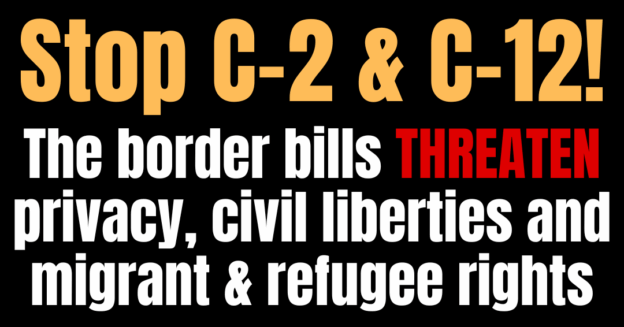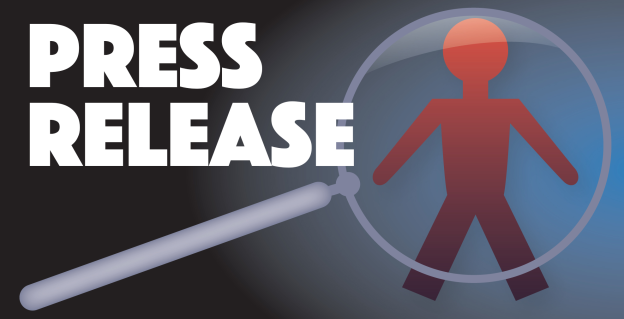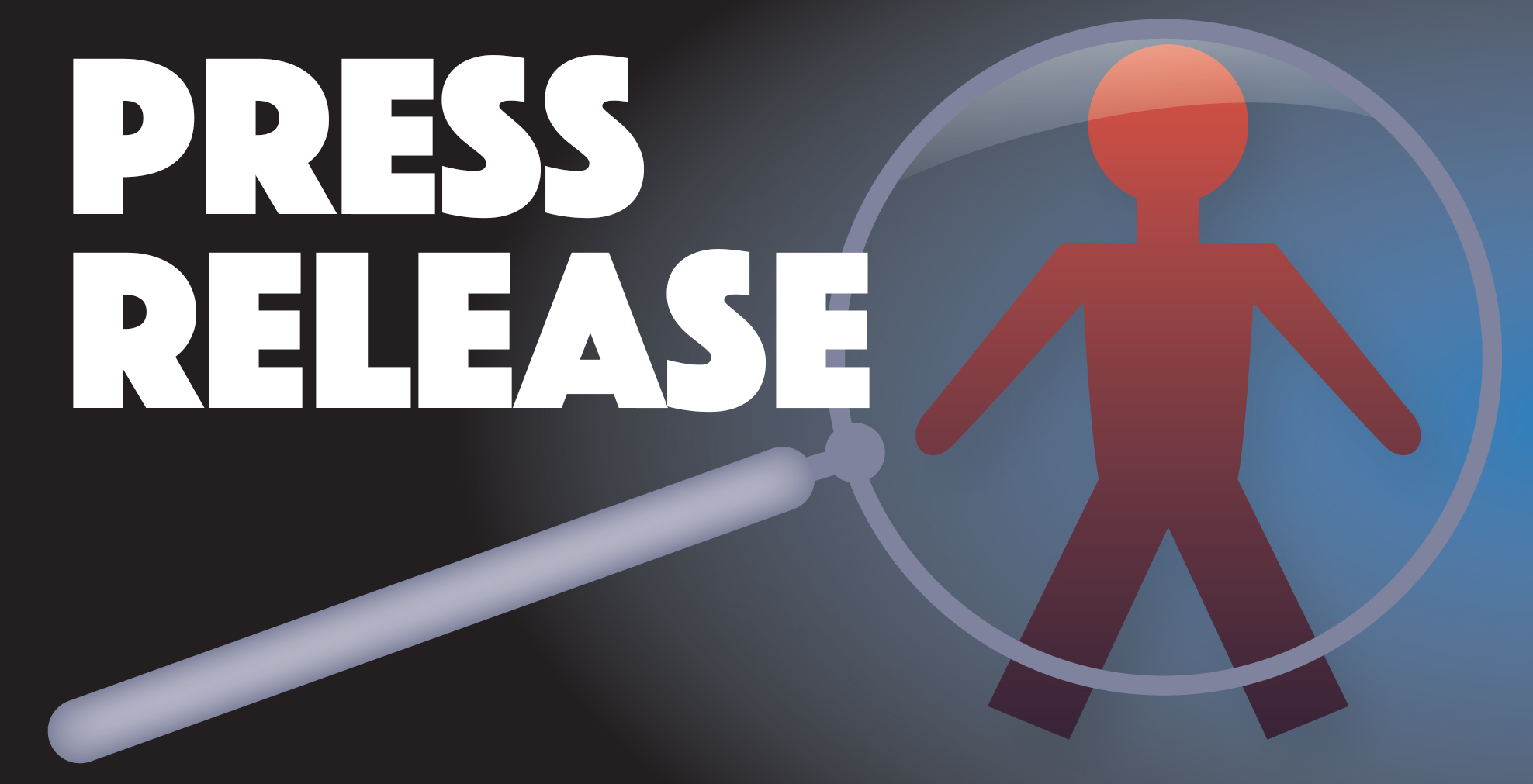Organizations across sectors reiterate call for complete withdrawal of both bills
OTTAWA, October 9, 2025 — A broad coalition of civil liberties, data privacy, refugee and migrant rights, and gender justice organizations strongly opposes the government’s introduction of Bill C-12, which seeks to fast track, rather than address, many aspects of Bill C-2’s myriad problems. Civil society organizations are reiterating their call for a full withdrawal of both bills, including the egregious expansion of surveillance powers that remain in Bill C-2, and the immigration provisions that restrict access to protection and expand mass status-cancellation now included in Bill C-12.
“Bill C-12 does not fix Bill C-2; it fast tracks some of the most egregious aspects, while still moving forward with the rest,” said Tim McSorley, national coordinator of the International Civil Liberties Monitoring Group (ICLMG). “Our government has made it abundantly clear that they will continue to fight for every privacy-violating measure Bill C-2 still contains, and are only introducing Bill C-12 to get restrictions on migrant and refugee rights adopted sooner.”
“The story of this legislative package is the same today as it was on day one of Bill C-2’s introduction; it’s about pleasing President Trump,” said Matt Hatfield, Executive Director of OpenMedia. “Canadians reject this multi-layered concession of our rights and freedoms to American pressure, and we expect lawmakers to resoundingly vote against both bills.”
In June 2025, over 300 organizations—including the Canadian Civil Liberties Association, the BC Civil Liberties Association, the Canadian Labour Congress, the United Church of Canada, the Migrant Rights Network, the Canadian Council for Refugees, Amnesty International, OpenMedia, Action Canada for Sexual Health and Rights, la Ligue des droits et libertés, HIV Legal Network, Canadian Association of Refugee Lawyers, Refugee Lawyers Association, Climate Action Network Canada, the Centre for Free Expression, the Canadian Muslim Lawyers’ Association and the Canadian Muslim Public Affairs Council—came together to call for a full withdrawal of Bill C-2. Across sectors, concerned organizations and experts have condemned the bill, including legal scholars, migrant and refugee rights organizations, advocates against gender-based violence, immigrant services organizations, and national and international cybersecurity experts.
“The government is trying to skirt around the overwhelming opposition to C-2 by repackaging it as something new. But C-12 leaves intact the measures to block refugee hearings, impose arbitrary retroactive one-year bars, and grant ministers mass immigration status-cancellation powers,” said Karen Cocq, spokesperson for the Migrant Rights Network, pointing to concerns raised by many other migrant rights organizations, including the Canadian Council for Refugees, the Canadian Association of Refugee Lawyers, OCASI and others about violations of refugee law and due process. “Prime Minister Carney is showing that his government continues to be aligned with Conservative Trump-like anti-migrant sentiment. But civil society groups remain united in rejecting this agenda and calling for the withdrawal of both bills.”
“Survivors of gender-based violence are uniquely harmed by arbitrary timelines and restricted pathways in immigration, which deny survivors the ability to seek protection when they most need it,” said Anuradha Dugal, Executive Director of Women’s Shelters Canada, joined by other organizations working to prevent violence against women including the Barbra Schlifer Commemorative Clinic, the Canadian Women’s Foundation, Women’s Legal Education and Action Fund, and others. “Any changes to C-2 that do not remove the immigration provisions will continue to put vulnerable women at risk.”
Bill C-12, An Act respecting certain measures relating to the security of Canada’s borders and the integrity of the Canadian immigration system and respecting other related security measures, retains an enforcement-first approach to drug policy, ignoring decades of evidence showing that criminalization and prohibition are driving the current toxic unregulated drug crisis. “Bill C-12’s accelerated scheduling will trigger faster illegal drug market innovations, making Canada’s already-lethal unregulated drug supply even more volatile,” said Nick Boyce of the Canadian Drug Policy Coalition. “This legislation will make the toxic unregulated drug crisis worse while wasting resources that should go to the things we need, like housing, healthcare, and harm reduction.”
About:
Joint letter: Over 300 Organizations Unite to Demand Complete Withdrawal of Bill C-2
Global Encryption Coalition: Bill C-2 Strong Borders Act
Open letter from legal scholars
Open Letter: Canada puts refugee claimants at risk with Bill C-2
Statement: Bill C-2 Risks Undermining Canada’s Commitments to Gender-Based Violence Survivors
Open Letter – The Strong Borders Act and its Harm to People Living with HIV and Other Marginalized Communities
More information:
Karen Cocq, Migrant Rights Network, 647-970-8464, karen@migrantworkersalliance.org
Matt Hatfield, OpenMedia, 1 (888) 441-2640 ext. 0, matt@openmedia.org
Tim McSorley, International Civil Liberties Monitoring Group, (613) 241-5298,
nationalcoordination@iclmg.ca
Kaitlin Geiger-Bardswich, Women’s Shelters Canada, (613) 462-2723, kbardswich@endvaw.ca
Nick Boyce, Canadian Drug Policy Coalition, (416) 948-0092, Nicholas_Boyce@sfu.ca







